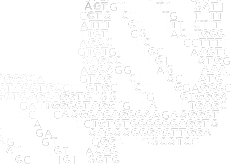Data
| 100 Intellectual Disability Trios | ||
| de Ligt et al. NEJM 2012 | RadboudUMC | Nijmegen, NL |
| Data type | Data provider | URL |
| Publication | NEJM | doi: 10.1056/NEJMoa1206524 |
| Supplement/Phenotypes | NEJM | |
| Raw sequencing data | EGA | EGAD00001000680 |
| Raw variant called data | EGA | EGAD00001000277 |
|
BACKGROUND: The causes of intellectual disability remain largely unknown because of extensive clinical and genetic heterogeneity. METHODS: We evaluated patients with intellectual disability to exclude known causes of the disorder. We then sequenced the coding regions of more than 21,000 genes obtained from 100 patients with an IQ below 50 and their unaffected parents. A data-analysis procedure was developed to identify and classify de novo, autosomal recessive, and X-linked mutations. In addition, we used high-throughput resequencing to confirm new candidate genes in 765 persons with intellectual disability (a confirmation series). All mutations were evaluated by molecular geneticists and clinicians in the context of the patients' clinical presentation. RESULTS: We identified 79 de novo mutations in 53 of 100 patients. A total of 10 de novo mutations and 3 X-linked (maternally inherited) mutations that had been previously predicted to compromise the function of known intellectual-disability genes were found in 13 patients. Potentially causative de novo mutations in novel candidate genes were detected in 22 patients. Additional de novo mutations in 3 of these candidate genes were identified in patients with similar phenotypes in the confirmation series, providing support for mutations in these genes as the cause of intellectual disability. We detected no causative autosomal recessive inherited mutations in the discovery series. Thus, the total diagnostic yield was 16%, mostly involving de novo mutations. CONCLUSIONS: De novo mutations represent an important cause of intellectual disability; exome sequencing was used as an effective diagnostic strategy for their detection. (Funded by the European Union and others.). |
||

Recent comments